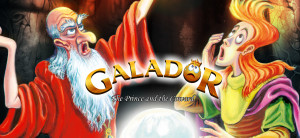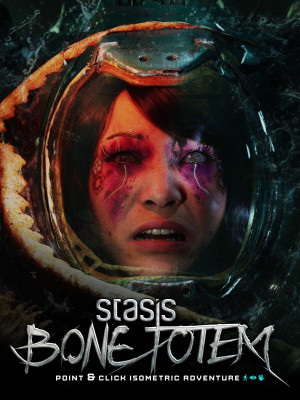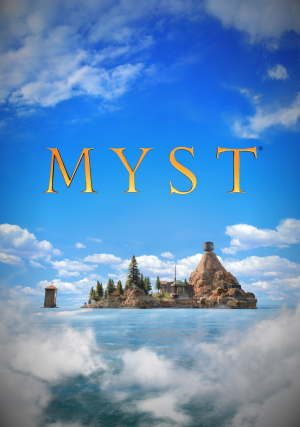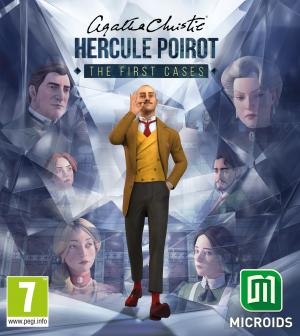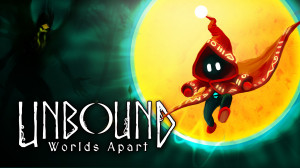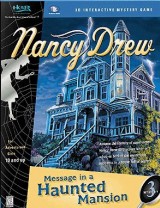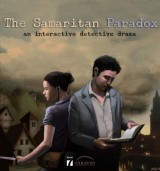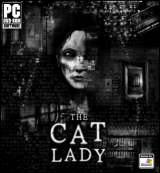Review for Galador: The Prince and the Coward
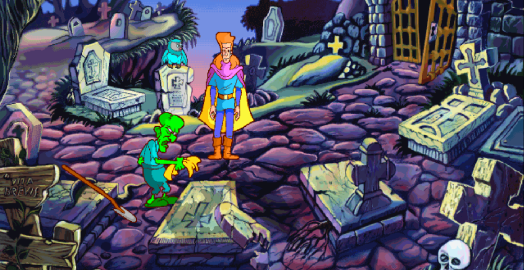
For years, Galador: The Prince and the Coward has been an object of some curiosity among adventure completionists in the English-speaking world. Well-regarded in its native Poland, it nonetheless spent two decades without any sort of English release, meaning screenshots of its gorgeous hand-drawn backgrounds and colorful cartoon characters were all many of us had to go on. ScummVM added support for Galador in 2020, with a community-produced fan translation following later that year, but even then it took until late 2021 for the game to reappear for sale via digital download. At last, English speakers could finally answer the question themselves: does Galador play as good as it looks?
Well, I’ve spent fifteen hours with the thing, and I don’t have the energy left to beat around the bush: No. No it does not.
Galador was developed by Metropolis Software as their follow-up to 1994’s abysmal Teenagent, and maybe the worst thing I can say about it is that it shows. Like that earlier adventure, Galador takes its aesthetic cues from its much-beloved contemporaries—with Discworld II, The Curse of Monkey Island, and the later King’s Quest adventures standing out as obvious influences—but again like Teenagent, it fails utterly to grasp what made those games worth playing. Its story is a flimsy excuse to connect underdeveloped set pieces; its characters, for all that their visual designs ooze personality, mostly appear for a single puzzle before vanishing entirely; and its puzzles require such mind-boggling leaps of logic that I almost hesitate to use the term, implying as it does a clear sense of cause and effect imposed by comprehensible rules and boundaries. If nothing else, Galador provides an effective counterbalance to the overly rosy view of the 1990s that’s sometimes prevalent in adventure circles: it was a Golden Age, to be sure, but there was more electroplating in the mix than we often remember.
The game begins with a close-up of Arivald, the self-proclaimed greatest wizard in the world, who fills us in on the backstory needed to understand what comes next. He explains that the titular Galador was a lazy young man who encountered a demon and was offered a simple trade: in exchange for his soul, he could have “a life of adventure and the title of prince.” The lad happily made the bargain, but the demon had something unexpected in mind: Galador found himself in the body of a handsome, brave and very much currently alive prince—who at that very moment was entering a duel to the death. This prince, it turns out, had been the demon’s target all along, but he’d never have offered his soul voluntarily; this trick provided a loophole through which His Highness might be spirited away to the infernal regions without technically breaking Lucifer’s rules. The panicked protagonist, meanwhile, fled the field of honor as the duel began—in the process dishonoring his “father,” the king, who promptly disowned him and named him an enemy of the state. Here Arivald’s narrative ends, and we join the fugitive Galador in a nearby graveyard as he tries to work out a plan: first, find the demon who swindled him; second, get his own body back; and finally, free the unfortunate prince from the clutches of Hell.
For the first hour or so, the game manages to glide along almost entirely on charm. There’s no word for the hand-drawn backgrounds but stunning; their lush colors, painterly sensibilities and excellent compositions are on par with the best the era had to offer. The characters are lively and fluidly animated, with their personalities coming through as much in the way they look and move as through dialogue (and often more so). Every screen feels halfway between a storybook illustration and a Saturday morning cartoon, and the bouncy, versatile MIDI score does an excellent job of setting the mood, whatever the context. The animation quality drops significantly during the few simple cutscenes that occur, but they are brief and uncommon.
Unfortunately, all the visual and musical charm in the world can’t make up for an English translation that could be most charitably called “haphazard.” There’s a lot of dialogue in Galador, and the fans who localized it from its original language put in a clearly Herculean effort, but the finished product is unpolished at best and unintelligible at worst. The script is technically comprehensible, but it’s a far cry from natural English. Lines slip back and forth between past and present tense; common phrases are rendered incorrectly, often with words translated in the wrong context; simple phrases are given stilted, unnatural syntax; articles are randomly dropped from sentences; and dialogue is peppered with bizarre, clunky turns of phrase. It’s almost impossible to feel immersed in the world when characters speak this way, and it totally saps whatever personality the writing may have had in its original Polish. (The Polish voice track remains, with only the subtitles having been translated.) It also gets in the way of several puzzle solutions; at one point I turned to a walkthrough and found that a magic “fattening” spell was actually for enlarging inanimate objects.
As poor as it is, the translation isn’t to blame for Galador’s myriad other shortcomings. One of these is the paper-thin story, the main thread of which all but fades away for long stretches of time while you tramp back and forth across the countryside on random errands. More than once I found myself wondering why Galador was behaving so strangely around people who seemed to know him, only to suddenly remember that he wasn’t actually the prince everyone took him for; the game goes so long without bringing up its main conceit that I’d managed to completely forget about it. On top of that, whole portions of the game went by in which I didn’t feel I had any particular goal except to move past whatever seemingly arbitrary obstacle I’d run into; even when the what and where of my objectives were clear, the why often failed to materialize.
Speaking of which, let’s talk about the puzzles. They aren’t flawed. They aren’t poorly clued. What these puzzles are is bad, plain and simple—some of the worst and most arbitrary I’ve ever seen in a commercially released adventure game. Need to defeat a dragon but can’t find a weapon to do it with? Simple: just figure out how to get an unrelated object away from its rightful owner, then give it to a character who’s never said anything about dragons, weapons, or the item you’ve stolen, for which they’ll reward you by revealing the location of an ancient tomb you can raid. Make sense? What about a puzzle where you have to acquire some garlic from a merchant who doesn’t speak your language; would you try to swipe it while his back is turned, perhaps, or simply gesture at it to indicate you’d like some? Or would you (minor spoiler warning) look for a scarf, as dressing extra-warmly might make you appear ill, and garlic, as a traditional cold remedy, is something the merchant would naturally provide free of charge to any sick person he saw? (End spoiler)
These are just a few examples; not all of them are this bad, but very few are actually good. Many, many puzzles require wild guesswork, forcing you to go to great lengths to steal things you don’t need so that you can use them hours later in places that don’t call them to mind. In multiple places the only way to progress is to give up and head for Arivald’s favorite tavern to ask him what to do. To make matters worse, there’s also an arcade sequence with shaky controls and a maddeningly counterintuitive solution, and a whole barrelful of traditional late-’90s pixel hunts.
The control scheme is mercifully straightforward, albeit not always well-implemented. A left-click moves Galador where you want him to go, while right-clicking on a hotspot produces a drop-down verb menu: Examine, Pick Up, Use, Open/Push, Close/Pull, Talk To, and the extraneous Walk To. This mostly works fine, but timed puzzles are needlessly complicated by the fact that it takes several clicks to do anything. Bringing the cursor to the top of the display opens the inventory, which materializes as a chest full of objects in the center of the screen. Here you’ll find an overhead map with which you’ll travel the kingdom, and with all the backtracking involved you’ll be glad to have it. Otherwise there’s only one movement speed, and no way to cut down on travel time. Confoundingly, the game offers no guidance for how to open the menu to save, load or quit; trial and error led me to find that it worked via pressing Ctrl+F5.
As it stands, it’s hard to judge Galador entirely fairly, as the awkward translation makes it all but impossible to evaluate the writing on its own merits. It’s clear that the game is meant to be a lighthearted comedy, but the butchered dialogue ruins its comic timing and renders most jokes dead on arrival. It’s clear, too, that the Polish voice performances add a dimension to the proceedings that an English-speaking audience can’t access, and considering the game’s many audiovisual charms, I might have come away with a more positive impression had I been able to play it (and understand it) as it was originally released. Instead, all I have to go on are a fractured translation, an unsatisfying story, and hours and hours of infuriating puzzles, so if you’ve waited this long for a chance to play Galador in English, my advice is to hold off. The game you’ve spent all these years imagining is probably better than the one you’ll get.
WHERE CAN I DOWNLOAD Galador: The Prince and the Coward
Galador: The Prince and the Coward is available at:
- GOG -70%


